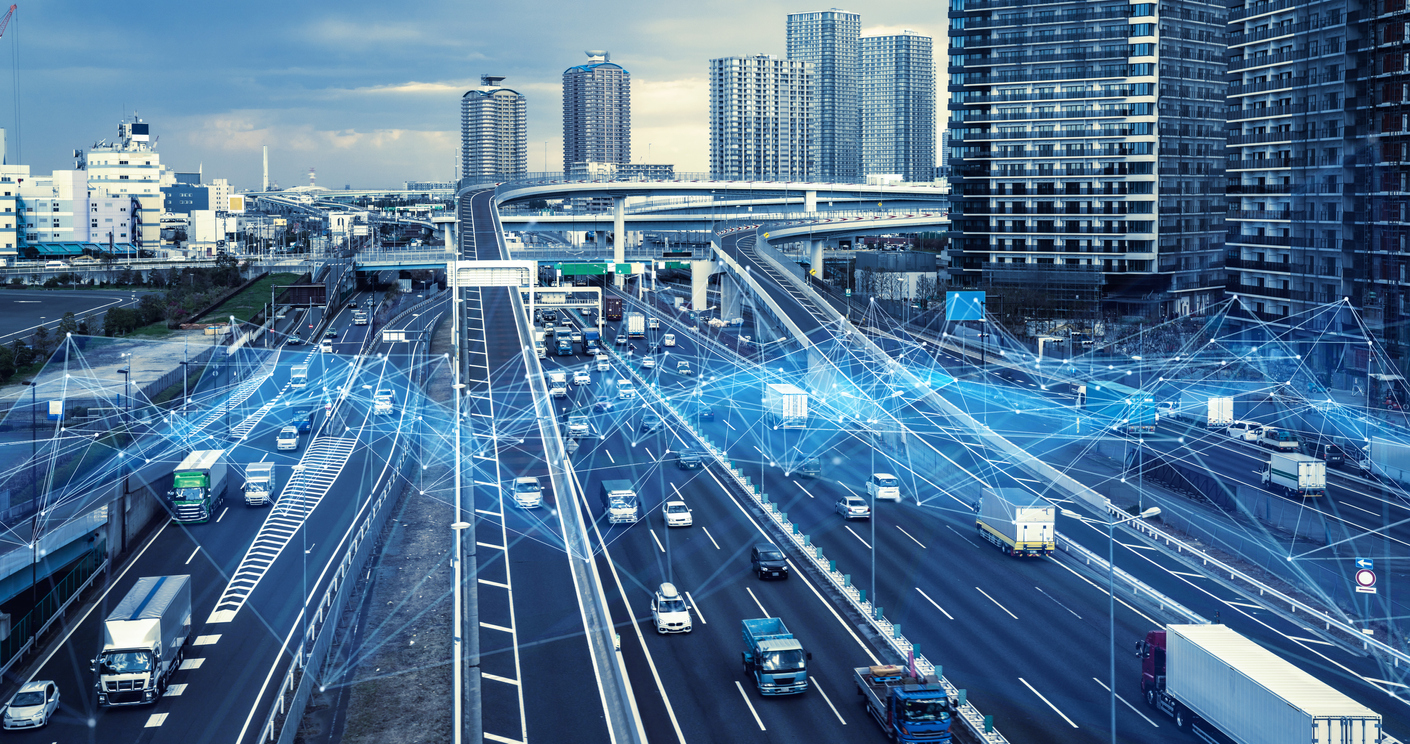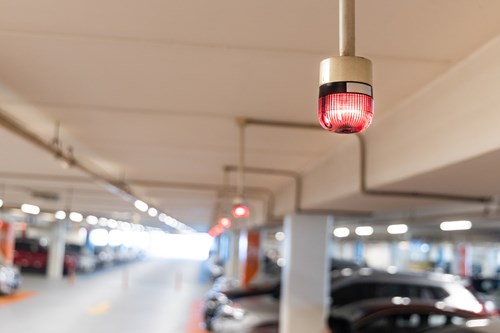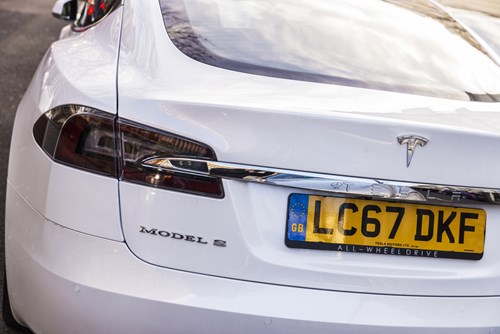
With the Smart City Parking Network Event right around the corner, we at Parking Network are delighted to see a packed agenda full of exciting smart city initiatives!
More densely populated cities create massive challenges in terms of pollution, housing, transport, sanitation, power, quality of living, and yes – parking. To tackle these issues head-on, the parking community is increasingly turning to smart city initiatives.
A smart city looks to upgrade a city’s existing infrastructure to become more efficient with the use of digital and telecommunication technologies.
Finding smarter and better parking solutions provides knock-on benefits for transport, energy, the environment, the economy, and human wellbeing. Other than just being a generally good thing to happen, it’s also creating a more positive relationship between people and parking. Ahead of our upcoming Smart City Parking Network Event on the 18th of May, let's have a look at 5 smart city technologies, which are providing parking with some of the biggest PR wins.
Contactless Payment Solutions:
 For a long time now municipalities and city councils have been investing in contactless parking. As cash-based economies have been moving inevitably towards digital economies, so too have municipalities been moving to digital parking terminals or pay-by-phone parking.
For a long time now municipalities and city councils have been investing in contactless parking. As cash-based economies have been moving inevitably towards digital economies, so too have municipalities been moving to digital parking terminals or pay-by-phone parking.
However, contactless has certainly taken on a new meaning since 2020. Municipalities and city councils have been investing in coronavirus-safe measures across the board. The digitalized services not only make our cities smarter and more efficient but alleviate the frustration of running out of change while paying for parking.
Smart-Parking Guidance Systems:
 Smart-parking guidance systems rely on sensors that detect free parking spaces (either through counting or single space detection) and dynamic displays that direct customers to them. The result is that motorists aren’t required to drive in circles to detect an available space. It also allows parking providers to utilize their spaces more effectively, as hidden parking spots are easier to detect.
Smart-parking guidance systems rely on sensors that detect free parking spaces (either through counting or single space detection) and dynamic displays that direct customers to them. The result is that motorists aren’t required to drive in circles to detect an available space. It also allows parking providers to utilize their spaces more effectively, as hidden parking spots are easier to detect.
Aside from the additional revenue which is generated from having more car parks in use, municipalities and city councils also have more productive citizens, fewer carbon emissions, and a better standard of living within their city.
Apps combining location and reachability data from a variety of physical sources such as on-parking sensors, traffic information, and user location create a more seamless and pain-free experience of parking. The efficiency gained from parking – contributes to knock-on efficiency gains, economically by reducing commuting times and environmentally by reducing carbon emissions caused by redundant driving. But more on Mobile Parking apps later...
Ticketless and Barrierless Technology:
 As parking becomes smarter, off-street parking providers are increasingly turning to ticketless and barrierless solutions. Barrierless and ticketless technology provides a more user-friendly service and a more streamlined operation, without sacrificing the security and oversite of more traditional services.
As parking becomes smarter, off-street parking providers are increasingly turning to ticketless and barrierless solutions. Barrierless and ticketless technology provides a more user-friendly service and a more streamlined operation, without sacrificing the security and oversite of more traditional services.
Private parking accounts for a massive proportion of parking within cities, both from residential private parking as well as car parks which cater to vehicle commuters. Barrier sites are commonly a source of traffic congestion, as motorists queue for entrance while taking up space on the roads. Ticketless and barrierless solutions remove this obstacle while providing a better customer experience and saving carbon emissions from fewer cars queueing. These technologies are increasingly incorporated into mobile applications, which allow for more user-oversite.
Cloud, IoT, Big Data, BlockChain
 This software provides the framework for smart cities and parking. There is a lot to talk about with each of these technologies and the individual roles they play – however, what is important to know is that they provide the framework for the various smart-parking technologies to be interconnected. For municipalities and city councils these technologies are vital in collecting, sharing, and utilizing data and turning it into insights. It provides the framework to connect and run technology such as license plate recognition software, automated ticketing, EV charging stations, smart parking guidance systems, contactless payment solutions, etc. Not all consumers are aware of the underlying framework to their favorite technologies, however without them Smart Cities wouldn’t be very smart, and so they rightfully belong on the list.
This software provides the framework for smart cities and parking. There is a lot to talk about with each of these technologies and the individual roles they play – however, what is important to know is that they provide the framework for the various smart-parking technologies to be interconnected. For municipalities and city councils these technologies are vital in collecting, sharing, and utilizing data and turning it into insights. It provides the framework to connect and run technology such as license plate recognition software, automated ticketing, EV charging stations, smart parking guidance systems, contactless payment solutions, etc. Not all consumers are aware of the underlying framework to their favorite technologies, however without them Smart Cities wouldn’t be very smart, and so they rightfully belong on the list.
Mobile Parking Apps:
 Mobile apps are becoming the medium of choice for which many of the exciting developments in parking are shared with consumers, while also being a node providing information back into the system. Pay-by-phone parking has been around since 2004, however, it is the increasing range of utility which makes them so popular. Mobile Parking apps can provide contactless payment options, on-street parking guidance, parking reservation systems, automated ticketing, and fines, EV charging system information (including locations and charging progress), parking costs information, and more.
Mobile apps are becoming the medium of choice for which many of the exciting developments in parking are shared with consumers, while also being a node providing information back into the system. Pay-by-phone parking has been around since 2004, however, it is the increasing range of utility which makes them so popular. Mobile Parking apps can provide contactless payment options, on-street parking guidance, parking reservation systems, automated ticketing, and fines, EV charging system information (including locations and charging progress), parking costs information, and more.
So that’s it for our list. Of course, it’s nowhere near exhaustive and only provides a tiny glimpse of what is happening in the world of smart city parking. But, if it piqued your interest, or you are involved in the parking world and want to delve into the subject in more detail, we invite you to check out our upcoming Smart City Parking Network Event. We will have industry experts hosting both short presentations and longer, interactive sessions. Kicking off the day will be our guest keynote speaker from the London Borough of Barnet who will address the topic of possible barriers to uptake of Smart City initiatives and what can be done about it.

